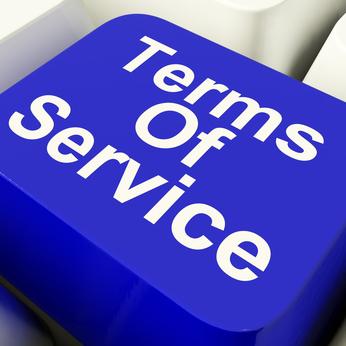It seems innocent enough. Your interior designer client has posted one of your beautiful photographs of her latest installation to her Instagram account. The photo highlights your client’s design of an expansive living room with vaulted ceiling and massive stone fireplace.
Occupying the lower right corner of the frame is a demure crimson loveseat by high-end furniture designer Donghia. The viewer almost does not notice the loveseat, it is so unobtrusive. But, in a nod to its source, your designer client has “tagged” her Instagram post with #donghia.
A few months pass and your receive an excited call from your client. Her design has been chosen for an Architectural Digest feature! Of course, that is great news for you too! Soon the phone rings and an assistant art director from A.D. agrees to pay you a generous fee in exchange for an exclusive license for your photographs.
Life is good, you think. But wait, there’s more.
While you are waiting for your big check to arrive you receive a follow-up call from that assistant art director asking why your photos — the ones you agreed to license exclusively to A.D. — are plastered all over the homepage of Donghia’s website advertising their new loveseat designs?
Huh? You rush to the computer, type in Donghia.com and sure enough, there it is. Your photo. Infringement, right? Not so fast.
This scenario plays out every day over and over. Why? That little #donghia hashtag, the Instagram terms of service, and new internet content aggregators like Olapic.
Olapic? Yes, Olapic. The start-up company’s business is identifying brand-related social media content, copying it, and then republishing it on the brand’s website. If it sounds like copyright infringement, think again.
A recent New York Times article quotes a spokeswoman for Olapic as saying, “brands do not always need to ask for permission to use a photo on their websites because users can give implied consent by tagging a company in their posts.”
But how did this happen?
Your interior designer client has an Instagram account. As a result, your interior design client agreed to the terms of service for Instagram that say that Instagram automatically has a royalty free perpetual license to any content your interior design client posts on Instagram for any purpose whatsoever.
Instagram, for its part, makes its content available to other companies, including Olapic. Olapic’s terms of service say:
By uploading User Content and posting User Content that you have tagged with Brand hashtags to social media platforms, you grant to the Brand, its third-party service providers who provide content management services including Olapic, and its retail partners (collectively, the “Licensed Parties”) the worldwide, perpetual, irrevocable, royalty-free, fully-paid, non-exclusive, transferable right to use your uploaded or Brand-tagged User Content in any manner to be determined in the Licensed Parties’ sole discretion, including but not limited to on its webpages, social media pages operated by the Licensed Parties, promotional e-mails and advertisements, and in other marketing, promotional and advertising initiatives, in any media now or hereafter known.
In other words, according to Olapic, when your design client tagged your photo #donghia she gave Donghia a free license to use your photo for advertising without paying you a penny!
Plus, on top of all that, since both the Olapic and Instagram terms of service have indemnification provisions, if you tried to sue either one, they might bring your designer client into the lawsuit and demand that she indemnify them from your claims! Now that’s a kick in the pants!
One possible response is for photographers to include language in their license agreements prohibiting their clients from posting licensed photographs on social media. Whether that will work in practice is another story.
We may see the limits of the implied license tested in cases soon. This is still an emerging problem. Check back for further developments.




Trackbacks/Pingbacks